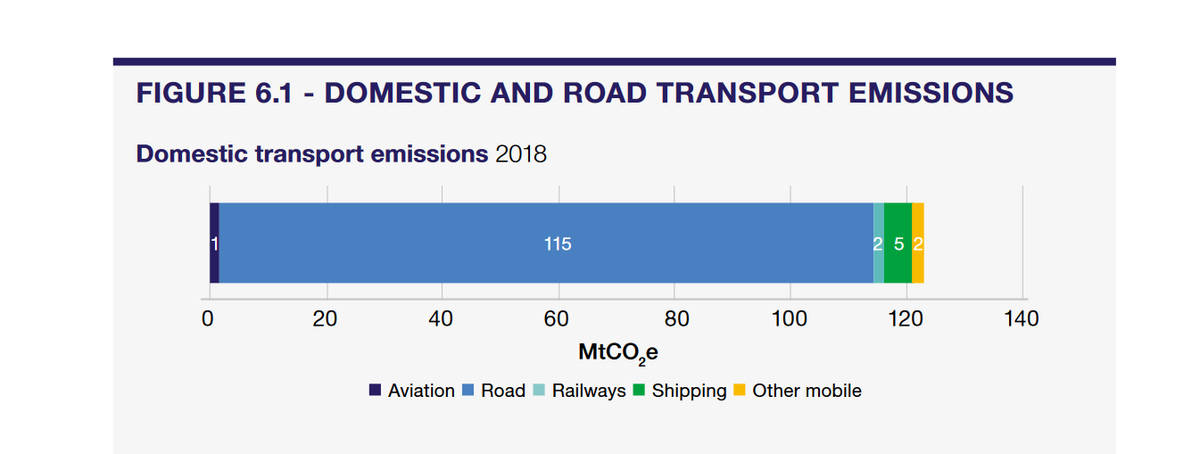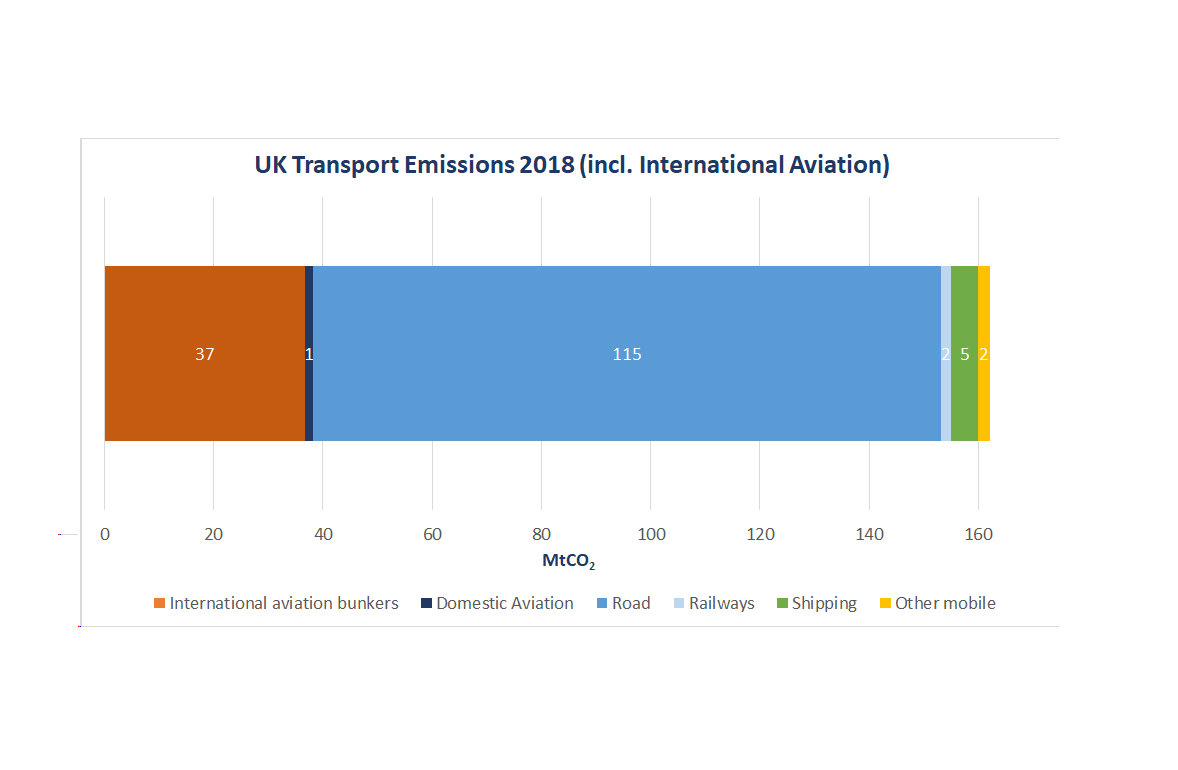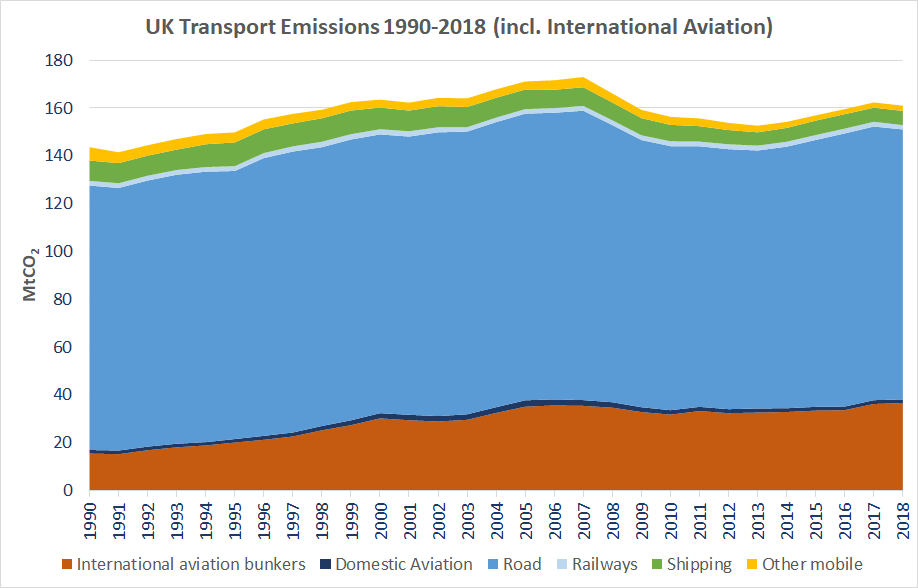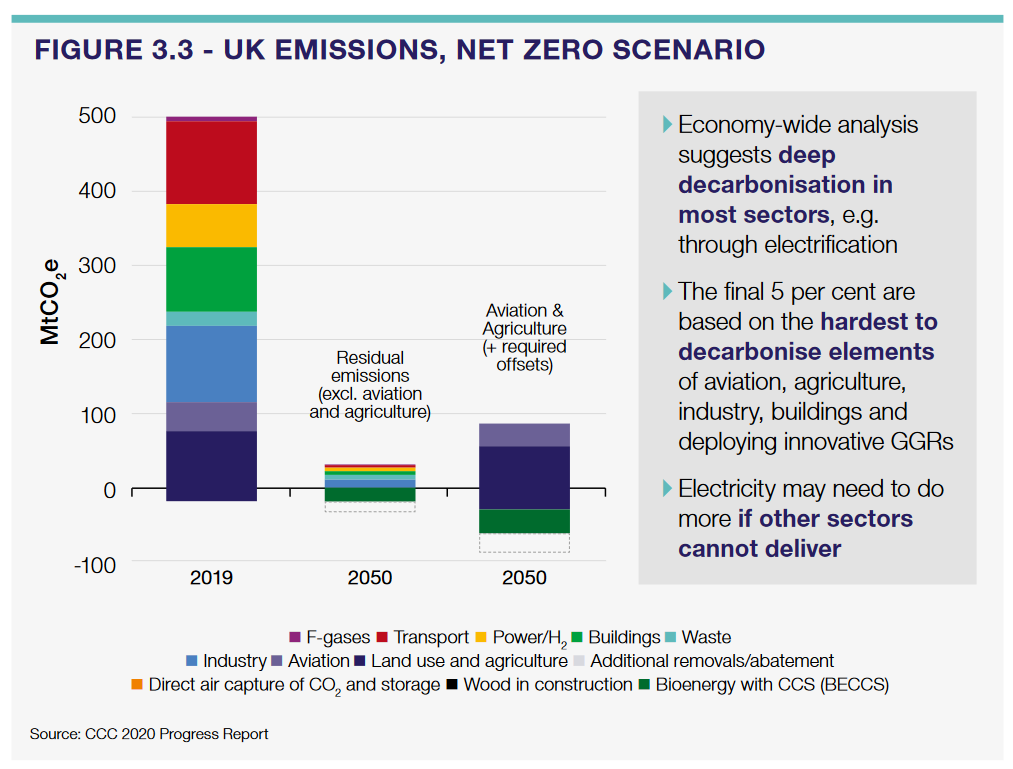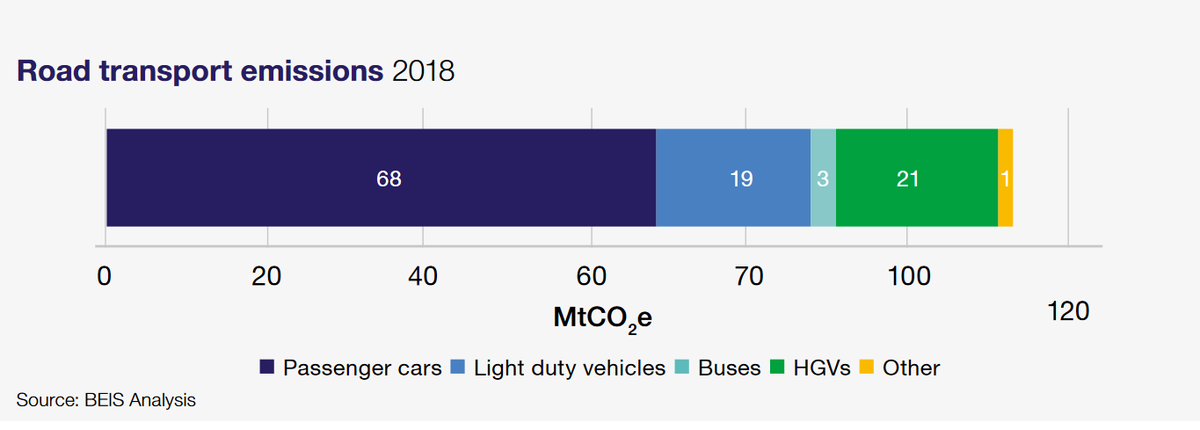The UK's new #EnergyWhitePaper yesterday mentioned #aviation.
Here's my brief round-up.
TLDR: We need to include and act on international aviation.
Here's my brief round-up.
TLDR: We need to include and act on international aviation.
The transport section opens with this now familiar geo-statistical obfuscation by zooming in on "domestic and road"  emissions which show aviation as barely worth mentioning.
emissions which show aviation as barely worth mentioning.
It is true that road transport is the dominant source of transport emissions and must be a priority.
 emissions which show aviation as barely worth mentioning.
emissions which show aviation as barely worth mentioning.It is true that road transport is the dominant source of transport emissions and must be a priority.
But aviation is not just domestic and is not just about CO2.
If we include international aviation, it is clear that air travel is rather more important that it appeared above - an important second to road transport.
If we include international aviation, it is clear that air travel is rather more important that it appeared above - an important second to road transport.
In fact, international air travel has been the fastest growing source of UK transport emissions since 1990.
On the full climate impact of air travel. It is true that all fossil fuel burning has an effect beyind just the CO2. It is this that the measure of 'Global Warming Potential' tries to encapsulate.
But for air travel, the non-CO2 effects are especially strong. The EU regulator recently recognised a GWP* of 3 for aviation CO2 emissions.
In other words, the CO2 is dwarfed by non-CO2 emissions. https://ec.europa.eu/clima/news/updated-analysis-non-co2-effects-aviation_en
In other words, the CO2 is dwarfed by non-CO2 emissions. https://ec.europa.eu/clima/news/updated-analysis-non-co2-effects-aviation_en
This report from @StayGroundedNet summarises the state of the science and explains the measurements of Global Warming Potential https://stay-grounded.org/fact-sheet-climate-impact/
So, aviation is an important area for reducing emissions, and one growing quickly. The #EnergyWhitePaper does "recognise aviation and maritime are international by nature and require international solutions". But is it really true that they are unable to take local action?
It is obviously true aviation is international, but so is much manufacturing and much HGV traffic. Yet no-one is suggesting that these cannot be mitigated nationally. The White paper includes HGVs within road transport and has a section on industry.
The Committee on Climate Change advised last week that international aviation (and shipping) are included in the 6th Carbon Budget. This is good news - it means that these emissions will now be considered within the remit of Government policy action.
https://www.theccc.org.uk/wp-content/uploads/2020/12/The-Sixth-Carbon-Budget-The-UKs-path-to-Net-Zero.pdf
https://www.theccc.org.uk/wp-content/uploads/2020/12/The-Sixth-Carbon-Budget-The-UKs-path-to-Net-Zero.pdf
They list policies like a domestic/regional kerosene tax or air miles levy (or frequent flyers tax), also suggested by @a_free_ride @NetZeroUK & @StayGroundedNet
As well as simply stopping building more runways - which the CCC say is necessary immediately.
As well as simply stopping building more runways - which the CCC say is necessary immediately.
This is an especially live issue given this afternoon's leak of the Appeal court's approval of Heathrow's #ThirdRunway https://twitter.com/PlanB_earth/status/1338826420563402754?s=20
Unfortunately, the #EnergyWhitePaper's emphasis on international action appears to deflect attention from these potential actions the Government could carry out nationally.
Unfortunately, current frameworks for international action are not strong. https://www.tandfonline.com/doi/pdf/10.1080/14693062.2018.1562871
Unfortunately, current frameworks for international action are not strong. https://www.tandfonline.com/doi/pdf/10.1080/14693062.2018.1562871
Aviation has a very effective international lobby from the IATA and the industry-dominated ICAO. It is the ICAO leading the industry's Carbon Offsetting and Reduction Scheme for International Aviation (CORSIA) - the main 'solution' to aviation's intractable emissions problem.
Critics are scathing in their criticism of the scheme. CORSIA is founded on offsetting - continuing to pollute but paying someone else to (hopefully) cut emissions somewhere else at some time now or in the future.
https://www.biofuelwatch.org.uk/2019/corsia-briefing/
https://www.biofuelwatch.org.uk/2019/corsia-briefing/
Many of the offsetting projects CORSIA is relying on are reported to have serious problems and it is usually near-impossible to guarantee that emissions savings are 'additional' (i.e. genuinely the result of the project's work).
e.g. https://redd-monitor.org/2020/11/25/aviation-industry-approves-two-redd-offsetting-schemes-good-news-for-aviation-and-conservation-industries-bad-news-for-the-climate/
e.g. https://redd-monitor.org/2020/11/25/aviation-industry-approves-two-redd-offsetting-schemes-good-news-for-aviation-and-conservation-industries-bad-news-for-the-climate/
Using biofuels has potentially enormously damaging consequences. Using hydrogen or synthetic kerosene would demand huge amounts of electricity and we have not yet built enough renewable generation to meet just our electricity needs.
https://www.biofuelwatch.org.uk/wp-content/uploads/Aviation-biofuels-report.pdf
https://www.biofuelwatch.org.uk/wp-content/uploads/Aviation-biofuels-report.pdf
In the long run, synthetic fuels, along with electric flight, are among the more promising solutions allowing climate-safe air travel. So it is good that the White Paper mentions the investment in developing this technology through FlyZero. However,
The industry has a track record of failure to get anywhere close to its own alternative fuel targets... HT @rutherdan https://twitter.com/rutherdan/status/1225529263727751178?s=20
These fuels are not an immediate solution and, as the @theCCCuk has pointed out, demand management policy must be prepared. https://www.theccc.org.uk/publication/reducing-uk-emissions-2020-progress-report-to-parliament/
Aviation is hard to decarbonise and presents difficult political decisions. Nevertheless, the UK Government must take responsibility for all its domestic and international aviation emissions. This is a real opportunity for showing leadership ahead of #COP26.

 Read on Twitter
Read on Twitter